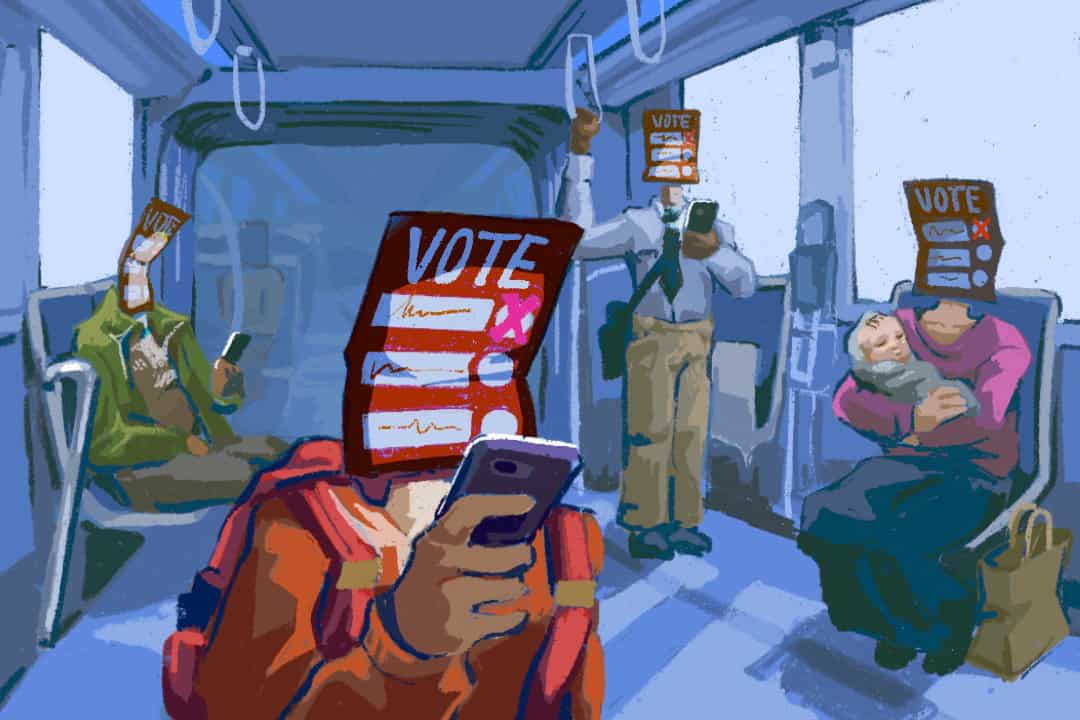One of the biggest political surprises in Canada this past summer, to me, was the Conservative Party’s June victory in the Toronto-St Paul’s by-election. Conservative MP, Don Stewart, filled the vacancy in the House of Commons.
This shocking result saw the Tories gain what had been a Liberal riding for three decades by a slim 633 votes, finally breaking into Toronto. Though Conservative Party leader Pierre Poilievre and his supporters have every reason to celebrate this victory, I believe the razor-thin margin should make them consider what more they could do to solidify their gains in the GTA.
Although I’m sure the Tories can easily form a majority government if they maintain their current poll numbers, if they wish to be a multi-term government that serves the interests of all Canadians, they should reconsider their appeal to urban voters.
What the Conservatives have to offer
Under the loud and charismatic Poilievre, the Conservatives have been riding high in the polls across much of the country for several consecutive months. It may even be tempting to view the Tories as a government-in-waiting. Poilievre’s social media platforms and news coverage of him are filled with clips of him at rallies and conventions, offering a glimpse into what his vision for Canada looks like namely, low taxes and less government regulation.
Poilievre released an official statement in September 2023 condemning “gatekeepers,” including city councillors, who oppose new infrastructure projects — labelling them as “NIMBYs” ( not in my backyard) and blaming them for preventing home construction in big cities. Through this statement, it is clear to me that his party recognizes the political power that urbanism carries in Canada.
In my view, to be an urbanist means to take an active interest in the development and well-being of cities and their public infrastructure. I think that public transit development is a key part of urbanism, as public transit can give city dwellers more choice in transportation if it becomes more convenient, affordable, and comfortable than driving.
Unfortunately in Toronto, this is not the case. We have erratically slow ‘reduced speed zones’ causing delayed and unreliable subway journeys and indefinitely delayed transit projects like Line 5 Eglinton, which are raising public transit users’ frustration. If the Conservative Party can identify and exploit these frustrations, I believe they may have much to gain in the upcoming federal election.
It is apparent to me that transit policy is an emerging battleground in federal politics. Prime Minister Justin Trudeau and his Liberal government took an early lead in urbanism through creating the Canada Public Transit Fund in July — which will provide three billion dollars per year to public transit developments starting in 2026–2027. However, Poilievre seems to already recognize this, pledging to cut funding to cities that do not create high-density housing developments around transit stations.
Conservatives and public transit: A not-so-unlikely duo
While I think the Conservatives’ effort to increase urban density and ensure efficient land use is commendable, it stops short of committing to fund new public transit projects like the Liberals, and would be best complemented by such.
In many parts of the world, conservative parties do not shy away from embracing urbanist policies that fund public transit. Former British Prime Minister Boris Johnson established London’s bike-sharing program in 2010 — affectionately dubbed “Boris Bikes” — while he served as the city’s mayor. He then went on to head the British Conservative government which pledged three billion pounds in 2021 to improve the UK’s bus service.
Among his Conservative successors, former Prime Minister Rishi Sunak’s government proposed to improve rail service in 2023 with the re-nationalization of railways under Great British Railways — a plan that Keir Starmer’s current Labour government has vowed to continue.
Simultaneously, Germany’s fiscally conservative party, the Free Democrats — which is part of the governing coalition and is in charge of the German finance and transport ministries — introduced the 49-euro Deutschlandticket in 2023. Unprecedented in its scale and affordability, the ticket includes unlimited rides on most local public transit services in the country and even some cross-border services.
Finally, Japan has been long governed by a firmly right-wing Liberal Democratic Party and simultaneously leads the world in transit-oriented urban design.
Canadians are overwhelmingly becoming city dwellers and I believe we can only stand to gain if elections are fought on various urbanist policies, rather than urban versus rural interests. Urbanism and public transit should not be considered a left-wing or right-wing issue, and in my view, do not conflict with conservatism at all. Urbanist policies are necessary to conserve the cultural heritage of our cities by preserving historic character.
To firmly break into the GTA, the Tories should fully embrace the normative power of urbanism and release comprehensive pro-public transit policies. Our democracy can only become healthier if all parties make deliberate, unequivocal attempts to serve both urban and rural voters alike.
Rudy Yuan is a third-year student at Trinity College studying international relations and German studies. He is the co-founder and co-president of the University of Toronto Rocket Riders — The Student Transit Forum.



No comments to display.